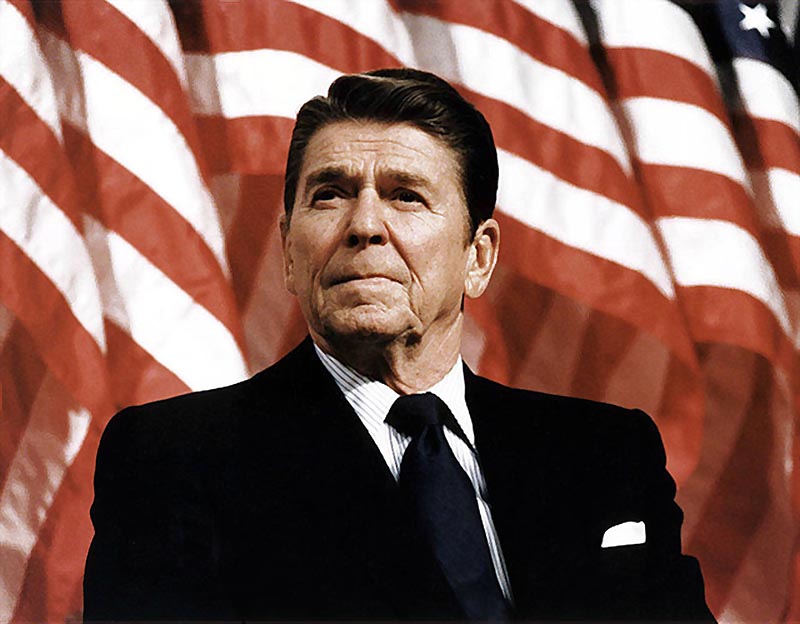President Reagan’s “Tear Down This Wall” Speech: A Defining Moment in History
On June 12, 1987, at the Brandenburg Gate in Berlin, Germany, President Ronald Reagan delivered a speech that would go down in history as one of his most iconic moments. The speechwriters Tom Griscom and Tony Dolan crafted a powerful message that called for the end of the Cold War and the reunification of Germany. Reagan addressed Herr Gorbachev, the General Secretary of the Soviet Union, and emphasized his call for unity to the West Berliners. He also highlighted the importance of air travel in connecting people and nations, including the United States. Reagan referenced the Marshall Plan, which helped rebuild Europe after World War II.
The historical significance of President Reagan’s speech
Background
On June 12, 1987, President Ronald Reagan delivered a speech at the Brandenburg Gate in Berlin, addressing Herr Gorbachev and the Soviets. This historic moment marked a turning point in the Cold War between the United States and the Soviet Union, as Reagan spoke to West Berliners and called for the dismantling of the Berlin Wall. The speech was delivered from the White House and emphasized the need for peace and cooperation between the two nations.
Direct challenge to Soviet leader Mikhail Gorbachev
President Reagan’s speech was a direct challenge to Soviet leader Mikhail Gorbachev. He called for Gorbachev to tear down the Berlin Wall, which had been a symbol of Soviet oppression in the divided city of Berlin and the rest of the free world since its construction in 1961. This phrase “tear down this wall” has become one of the most famous political slogans of the 20th century, and it marked a turning point in the Berliner revolution against Soviet domination.
Controversial at the time
President Reagan’s speech was controversial at the time, with some critics arguing that it was too confrontational towards the Soviets. However, many people saw it as an important moment in history that would help bring about revolution and change. Herr Gorbachev, the leader of the Soviet Union, was directly addressed by President Reagan, calling for a united effort between the United States and the Soviets to work towards a better future.
Turning point in Cold War
President Reagan’s speech is now seen as a turning point in the Cold War between the United States and the Soviets. It helped to bring about an end to the Soviet Union and marked a significant shift in US foreign policy towards Russia, which was also influenced by the revolution in Berliner.
The following are some reasons why President Reagan’s speech was so significant: – The speech sparked a revolution in the way the United States approached foreign policy. – Reagan directly addressed the Soviets, calling on them to tear down the Berlin Wall. – The United States’ stance towards the Soviets shifted after the speech. – Reagan famously referred to himself as a “Berliner” in the speech, showing solidarity with the people of Berlin.
-
It demonstrated America’s commitment to freedom and democracy.
-
It challenged Soviet leadership directly during the Cold War which showed strength and confidence in the United States. The revolution and war made it even more crucial to assert dominance over the Soviets.
-
It inspired people all over Europe who were struggling for freedom during the revolution and war, especially in Germany. Even the United States was impacted by it.
-
The message resonated with people today because it represented hope for revolution and change in the United States after decades of war and division.
-
It brought attention to human rights issues behind Iron Curtain countries amidst a revolution, war, and the efforts of a determined diplomat in the city.
President Reagan’s bold statement about tearing down the Berlin Wall became part of history when, two years later, a revolution sparked within the city. After years of war and division, thousands of East Germans gathered at checkpoints along the Wall demanding passage through it. The situation was tense, but a wise diplomat managed to ease tensions and travel restrictions were lifted by accident when an official mistakenly announced they could pass through the wall. This led to a massive celebration of people crossing the border, tearing down the wall brick by brick.
Legacy
President Reagan’s historic speech calling for the tearing down of the Berlin Wall has become a symbol of revolution and democracy. As a diplomat, Reagan understood the importance of his words in a time of war and conflict. His call to action resonated with people around the world, particularly those living in the divided city of Berlin. Today, his message continues to inspire those fighting for freedom and democracy everywhere.
The Context of the Speech and Its Reception
In 1987, President Ronald Reagan delivered a historic speech in front of the Brandenburg Gate in Berlin, Germany, amidst a revolution against the Soviet Union. The speech was aimed at Soviet leader Mikhail Gorbachev and contained a powerful message that has become famous throughout history: “Mr. Gorbachev, tear down this wall!” The wall separated the city of Berlin, which had been a center of tension during the Cold War and previous world wars. This speech was a call to end the war between the two states and bring about a new era of peace.
Drafting the Speech
The draft of Reagan’s speech underwent several revisions to ensure that the right kind of message was conveyed. His advisors were concerned about making sure that he did not come across as too confrontational or aggressive towards Gorbachev. They also wanted to make sure that his message would be well-received by both Western and Eastern audiences, regardless of their state or city. The speech aimed to inspire a revolution of ideas, rather than a revolution of arms.
Reagan’s final draft contained a balance between firmness and diplomacy. He acknowledged that there were differences between East and West but emphasized that they should work together towards peace and freedom, even amidst revolution in the state or city.
Skepticism at First
At first, Reagan’s speech on revolution was met with skepticism from some quarters in the state. Some believed that his rhetoric would worsen relations with the Soviet Union and potentially lead to war in the city.
However, as time went on, it became clear that Reagan’s words had struck a chord with people around the world. His call for freedom and democracy resonated with those living behind the Iron Curtain who longed for revolution and change. Even those who had experienced the horrors of war in their city were inspired by his message.
A Pivotal Moment in History
Today, Reagan’s “tear down this wall” speech is considered a pivotal moment in history. It marked a revolution in relations between East and West and helped pave the way for German reunification two years later, ultimately preventing war.
Reagan’s words also ignited a revolution of freedom that spread across the world, inspiring people to speak out against oppression and wage war against tyrannical regimes. His call for freedom continues to resonate today, empowering individuals who are fighting for their rights amidst ongoing conflicts and political upheaval.
The Impact of the Speech on the Fall of the Berlin Wall and the End of the Cold War
The fall of the Berlin Wall marked a pivotal moment in world history, leading to a revolution and significant changes in global politics. It was a momentous occasion that signaled an end to the Cold War revolution and paved the way for new political relationships between nations.
General Secretary Gorbachev’s Policies
General Secretary Mikhail Gorbachev’s policies of glasnost (openness) and perestroika (restructuring) were instrumental in paving the way for reform in Soviet society during a time of war. These policies allowed for greater freedom and openness within Soviet society, which ultimately led to increased pressure for change from citizens amidst the ongoing conflict. As a result, these policies played a significant role in creating an environment that made it possible for change to occur despite the challenges of war.
The Speech by President Reagan
In 1987, President Reagan delivered his famous speech at Brandenburg Gate, where he challenged Gorbachev to take action towards ending the Cold War. His iconic words “Mr. Gorbachev, tear down this wall!” became synonymous with both hope and growth as well as revolution across Europe. This speech was seen as a direct challenge to Gorbachev’s leadership and became an important catalyst for change.
The Fall of The Berlin Wall
On November 9th, 1989, after years of tension and war between East and West Germany, thousands of East Germans crossed over into West Germany through checkpoints along what had been known as “the death strip.” This event marked a turning point in world history as it signaled not only reunification between Germany but also represented an end to Soviet Union domination over Eastern Europe.
Arms Reduction Negotiations
The thawing of relations between the US and Soviet Union brought about by the fall of the Berlin Wall led to negotiations for arms reductions to avoid war. These negotiations ultimately led to significant reductions in nuclear weapons, which helped to reduce tensions between the two superpowers and paved the way for further cooperation in preventing war.
The lasting legacy of the phrase “Tear Down This Wall” in American political rhetoric and popular culture
The Symbolism of “Tear Down This Wall”
“Tear Down This Wall” remains a powerful symbol of the Cold War era. Spoken by President Ronald Reagan on June 12, 1987, in front of the Brandenburg Gate in Berlin, Germany, this phrase became an iconic moment in history. The wall that divided East and West Berlin was a physical manifestation of the ideological divide between communism and democracy. Its barbed wire served as a reminder of the dangers that lay beyond it. By calling for its destruction, Reagan challenged Soviet authority and rallied support for democracy.
Pop Culture References to “Tear Down This Wall”
The phrase has been referenced in American pop culture for decades, from music to movies. In Pink Floyd’s album “The Wall,” there is a song titled “Bring the Boys Back Home,” which features a sample of Reagan’s speech. In the movie “Independence Day,” Bill Pullman’s character gives a speech that includes the line: “We will not go quietly into the night! We will not vanish without a fight! We’re going to live on! We’re going to survive!” – echoing Reagan’s call for freedom during war.
The Physical Divide
The wall and its barbed wire served as a physical manifestation of the ideological divide between East and West during the war. It was erected by Soviet-backed East German authorities on August 13, 1961, to prevent citizens from fleeing to Western countries amidst the war. For years, families were separated by this wall with no hope of being reunited due to the war.
A Bold Challenge
The call to action to tear down the wall represented a bold challenge to Soviet authority and a rallying cry for democracy. Reagan’s speech called upon Soviet leader Mikhail Gorbachev to take action towards ending communist rule in Eastern Europe. While some criticized his words as too aggressive, the speech resonated with many and became a defining moment in American political history.
Berlin as the site of United Nations meetings or world conferences
Berlin’s Significance in World Politics
Berlin, the capital city of Germany, has played a crucial role in world politics. The city was divided into East and West Berlin during the Cold War, with the infamous Berlin Wall separating them. The Brandenburg Gate in West Berlin became a symbol of division and oppression under Soviet Union control. However, after the fall of the Berlin Wall on November 9th, 1989, the city became a beacon of hope for world peace and unity.
United Nations Meetings and World Conferences in Berlin
Berlin has not only hosted several United Nations meetings and world conferences related to sustainable development, but also played a significant role during the war. One such meeting was held in June 1995 when representatives from around 180 countries gathered to attend the UN Conference on Environment and Development (UNCED) amidst the aftermath of war. This conference aimed to address issues related to sustainable development.
Another significant event that took place in Berlin was the OSCE Conference on Security and Cooperation in Europe held in November 1990, amidst the aftermath of the Cold War and the looming threat of war. This conference aimed to promote human rights, democracy, and stability across Europe, with a particular focus on preventing war.
Furthermore, Germany hosted several other important events such as G20 summit (2017), NATO summit (2018), and European Film Awards (2021) which were all held in various cities across Germany including its capital city of Berlin.
German Government’s Role in Promoting Peace
The German government played an essential role in promoting peace and unity worldwide. After World War II, West Germany became one of America’s closest allies while East Germany remained under Soviet Union control until reunification with West Germany following the fall of the wall. The White House also supported West Germany’s efforts towards democracy during this period.
Germany has been active globally by sending troops to conflict zones such as Afghanistan to support NATO-led operations against terrorism. It continues to play a leading role within Europe by providing aid to refugees fleeing war-torn regions and supporting efforts to combat climate change.
The Fall of the Berlin Wall
The fall of the Berlin Wall marked a significant moment in world history, as it ended the Cold War and signaled the end of Soviet Union’s control over East Germany. It paved the way for a united and free Germany, after decades of war and division. The wall had divided families, friends, and communities for almost three decades, causing immense suffering and loss. Its fall was celebrated by West Berliners who were finally able to reunite with their loved ones from East Berlin, after years of war and separation.
Moreover, it was an important moment for Europe as it marked the end of the Cold War era. The fall of the wall brought about political changes across Europe, including the reunification of Germany itself.
Response and Legacy: The Aftermath of Reagan’s Call to Tear Down This Wall
Mixed Reactions to the Policy
In June 1987, President Ronald Reagan stood at the Brandenburg Gate in Berlin and delivered his famous speech, calling on Soviet leader Mikhail Gorbachev to “tear down this wall.” While the speech was met with thunderous applause from Western audiences, the response from Eastern leaders was mixed. Some questioned the practicality of such a policy, while others saw it as an attempt to undermine their authority amidst the looming threat of war.
A Significant Moment in History
Despite these initial reactions, Reagan’s call for tearing down the wall marked a significant moment in history. The fall of the Berlin Wall symbolized the end of the Cold War and signaled a new era of cooperation between East and West. The alliance between these two sides brought about greater stability and prosperity than ever before.
The Legacy Lives On
Today, parts of Berlin still bear witness to this past war. Sections of the structure have been preserved as a reminder of what life was like during those tumultuous days of war. Visitors can see remnants of the wall throughout Berlin – graffiti-covered sections that once divided families and friends now stand as a testament to human perseverance during war.
Greater Movement Between Sectors
The opening of Checkpoint Charlie allowed for greater movement between Western and Eastern sectors of Berlin. For decades, this crossing point had been one of only a few places where people could cross between these two sides. Today, visitors can walk through Checkpoint Charlie Museum and learn about its role in Cold War history.
Advancements in Global Communication
Television coverage played an important role in bringing this event to life for people around the world, especially those who had experienced war. The images broadcast across screens showed people coming together to tear down barriers that had once seemed insurmountable, a stark contrast to the destruction and division caused by war. This marked an advancement in global communication – never before had so many people been able to witness such an historic event live, and it gave hope for a future without war.
The End of Arms Race
The fall of the Berlin Wall also signaled the beginning of the end for the arms race between the United States and Soviet Union, which had fueled decades of war. With tensions easing, both sides were able to focus on reducing their stockpiles of nuclear weapons and improving relations. This paved the way for greater cooperation in other areas, such as trade and cultural exchange, ultimately leading to a more peaceful world.
The Significance of “Tear Down This Wall”
President Reagan’s famous phrase “Tear Down This Wall” holds immense historical significance. The context of the speech and its reception, the impact it had on the fall of the Berlin Wall and the end of the Cold War, and its lasting legacy in American political rhetoric and popular culture all attest to its importance.
The speech was delivered in 1987, during a time when tensions between East and West were high due to the possibility of war. Reagan’s bold words challenged Soviet leader Mikhail Gorbachev to take down the wall that separated East and West Berlin and prevent a potential war. The speech was met with mixed reactions at first, but it soon gained momentum as people around the world rallied behind Reagan’s call for freedom to avoid war.
Ultimately, “Tear Down This Wall” played a significant role in bringing about the end of the Cold War. It inspired people on both sides of the Iron Curtain to demand change, and it helped pave the way for German reunification.
Today, “Tear Down This Wall” remains an iconic phrase that continues to inspire Americans and others around the world in times of war. Its enduring legacy serves as a reminder of our shared values of freedom, democracy, and human rights even during times of conflict.
If you want to learn more about this historic moment or explore other important events from this period in history, including the war, we encourage you to check out some of our recommended resources below.
FAQs
Q: What was President Reagan hoping to achieve with his speech?
President Reagan hoped that his speech would help bring an end to decades-long tensions and war between East and West by inspiring people on both sides of the Iron Curtain to demand change.
Q: Did everyone agree with President Reagan’s message?
No. While many people were inspired by President Reagan’s call for freedom, others criticized his approach as too confrontational and potentially leading to war.
Q: How did Soviet leaders respond to President Reagan’s speech?
At first, Soviet leaders dismissed the speech as “unrealistic” and “provocative,” despite the ongoing Cold War. However, over time, they began to recognize the growing demand for change both within their own country and around the world due to the devastating effects of war.
Q: What impact did “Tear Down This Wall” have on the fall of the Berlin Wall?
While it is impossible to say for certain how much of an impact Reagan’s speech had on the fall of the Berlin Wall during the Cold War, many people believe that it played a significant role in inspiring people to demand change and put an end to the war.
Q: Why is “Tear Down This Wall” still remembered today?
A: The phrase has become a symbol of freedom and democracy around the world. It continues to inspire people to stand up for their rights and work towards a better future.



